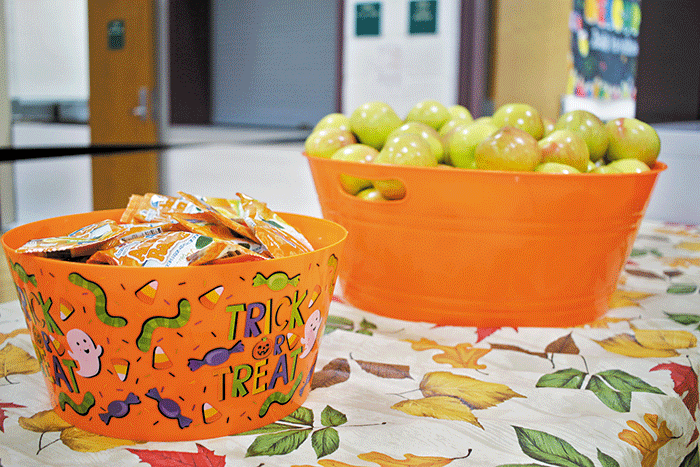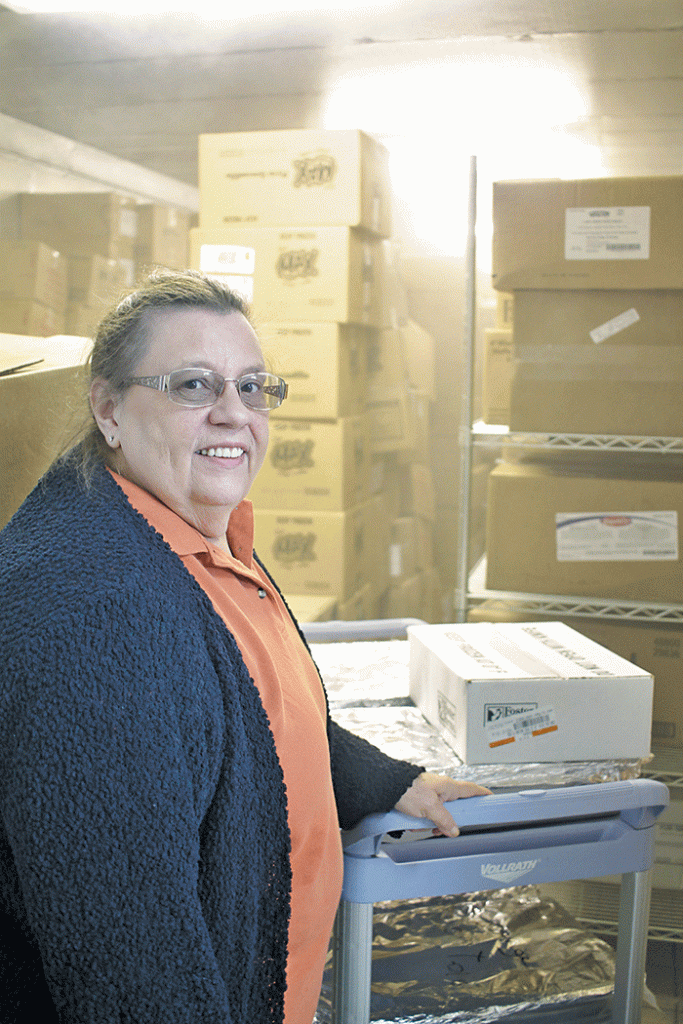Distribution shortage hits home at Frazee School
News | Published on October 25, 2021 at 6:33pm EDT | Author: Chad Koenen
0
School districts see main food supplier contract canceled
By Barbie Porter
Editor
y now, most have heard about the distribution woes, where vessels carrying thousands of cargo containers are at a standstill near ports from coast-to-coast. The cargo that finds its way to shore finds another obstacle with a shortage of truck drivers to get the goods to the market.
Many are on the waiting end of the distribution problem, including the Frazee-Vergas School District. During its regularly scheduled meeting on Monday, Oct. 11, Superintendent Terry Karger stated, “There is a distribution shortage and it is hitting home.”

What does a distribution shortage mean for the district and its students? Cheryl Neyens, the school district’s food service director, agreed to sit down for a chat early last week and give a full scope of the challenges the district has faced due to the shortages.
The district works with Lakes Area Service Co-op, as do most school districts in the lakes area. The co-op allows the districts to have more buying power. Such was the case when the schools contracted with the food supplier and distributor Food Service America. Cash-Wa bought Food Service America and informed the co-op in September that it would be terminating the food distribution contract as of Nov. 2.
Neyens said the co-op contract allowed either party to end the contract with a 60-day notice. She added the cancelation may have happened even if the former food supplier had not been purchased by another company.
Neyens said area districts that utilized the co-op contract for FSA as a main food distributor included Frazee, Perham and Detroit Lakes. The reason for the contract termination was due to the fluctuating cost of food products, Neyens said. If prices continue to rise, and the contract had remained in place, Cash-Wa potentially would see a substantial loss. With no locked-in contract price, the company can charge according to their costs for the product. In the end, it may translate to higher prices for school districts.
Neyens said while they contracted with Food Service America, she was mindful to keep up with contacts in the other two major food distribution companies through the years. Neyens believes that has helped now that all districts are scrambling to find some items.
While some items are on cargo ships, others are in short supply due to a lack of workforce somewhere in the supply chain—be it food processor, factory worker, or truck driver. Again, down the line the school district is bearing the brunt of the shortage.
Adding to the complications is the federal government’s National School Lunch Act. In 1946, President Harry Truman signed the Act into law to federally assist public and non-profit private schools with providing meals. The Free and Reduced Lunch Program, which ensures children will have the means or opportunity to eat at school came from this. In time, regulations were also put on nutritional values of meals served to students.
Neyens reported last year, when there was at-home learning for students due to the COVID-19 pandemic, regulations on nutrition standards were relaxed. When the current school year started, the regulations were put back in place with even less sodium counts allowed per meal.
“At the start of the year there were supply issues, some meat products were hard to find, or not to be found,” she said, adding she never thought she’d go to order food and see so many items out of stock.
The challenge to find specific food staff members planned for the menu can cause complications with the required nutritional regulation. For example, if a specific chicken nugget that had low sodium is not available, substituting it for a different nugget may raise the sodium count of the meal. In turn, something else on the plate would need to be substituted with a product that offered less sodium.
Next year the allowed sodium count is scheduled to decrease again. Neyens said that may pose larger problems as some meat products use salt as a preservative, and lowering the sodium count may fall on the manufacturers, which is not something the school can control.
Manufacturers may be up to tackling improved food nutrition at some point, but many are struggling with producing adequate quantities of their product. Neyens said some products are not available due to lack of production supplies. Recently, Frazee-Vergas students saw a limit on the popular juice cups this year, as the manufacturer is dealing with an aluminum shortage. The same problems are cropping up in canned products as well. Neyens said the district had stocked up on goods, and has been able to change with the times.
“We were given an option to submit a waiver to the state (if the district cannot adhere to the nutrition regulations due to the shortages),” Neyens said. “We have not had to submit one yet.”
She added sending a waiver was made efficient and simple, as it is a single sheet to be filled out and submitted over the internet.
Another problem the district is facing has to do with commodities provided by the government. She said the co-op and state are looking for avenues to have those products delivered.
“We are lucky because we have a big walk-in (cooler/freezer), but some schools don’t have that,” Neyens said, noting storage space became paramount to being as best prepared for the tumultuous year in food service.
When it comes to changing the menu at school, Neyens does her best to notify students and staff as soon as a substitute is made.
“We ask people be patient,” she said. “We don’t know what November and December will bring. What is served might not be what was on the menu, but we will feed the students.”

